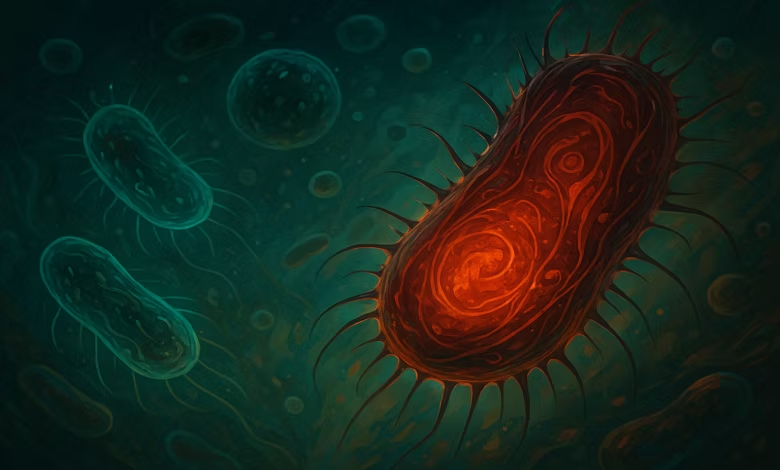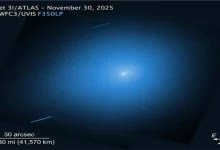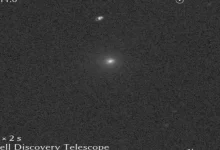1 Trillion Species, 3 Billion Years: AI Helped Trace Bacteria Evolution On Earth

Brisbane/Zurich: Earth harbors nearly a trillion species of microorganisms, with bacteria representing the vast majority. These single-celled organisms lack bones and do not leave the clear fossil evidence that larger animals do, making it challenging for paleontologists to reconstruct their early evolutionary history. However, with machine learning, researchers have now filled many of these gaps. Their new study, published today in Science, shows that some bacteria evolved the ability to utilize oxygen long before the planet’s atmosphere reached its current oxygen-rich state around 2.4 billion years ago.
A monumental event in Earth’s history
Approximately 4.5 billion years ago, a Mars-sized object collided with Earth, triggering the formation of the Moon and turning the planet’s surface to molten rock. Any preexisting life was likely wiped out by this cataclysm, after which single-celled microbes—the ancestors of all modern organisms—emerged. For roughly 80% of Earth’s history, life was exclusively microbial.
Evolutionary biologist Theodosius Dobzhansky famously noted in 1973 that “nothing in biology makes sense except in the light of evolution.” Today, scientists compare DNA sequences across the vast diversity of life to establish relationships among different groups. For instance, humans are genetically closer to mushrooms than to apple trees. Although DNA comparisons reveal these relationships, they do not indicate when these evolutionary splits occurred.
One crucial marker comes from geology: the Great Oxidation Event, which happened about 2.4 billion years ago. During this period, cyanobacteria pioneered photosynthesis—a process that not only provided energy by harnessing sunlight but also produced oxygen as a byproduct. This slow accumulation of oxygen eventually transformed Earth’s atmosphere. Initially toxic to many organisms, oxygen’s rise forced bacteria to either evolve new metabolic pathways to utilize it or retreat into oxygen-free niches.
The bacterial tree of life
Using the Great Oxidation Event as a calibration point, researchers have added dates to the bacterial evolutionary tree. They trained an artificial intelligence (AI) model to predict whether bacteria rely on oxygen based solely on their genetic composition. Many modern bacteria, such as cyanobacteria, use oxygen, while others, like those in the human gut, do not. The presence of oxygen leaves distinct markers in a cell’s genome, making the AI’s task relatively straightforward.
This model was then applied retrospectively to estimate which ancestral bacteria were capable of oxygen utilization, taking advantage of current methods that deduce ancestral genes from modern DNA.
surprising twist
By treating the Great Oxidation Event as a “fossil” reference, the study has produced a detailed timeline of bacterial evolution. Integrating findings from geology, paleontology, phylogenetics, and machine learning, the research refines our understanding of when key evolutionary changes occurred. Remarkably, the results indicate that some bacterial lineages capable of using oxygen existed nearly 900 million years before the Great Oxidation Event. This suggests that the adaptation to oxygen emerged in environments where oxygen was still rare. Even more unexpectedly, the study proposes that cyanobacteria may have acquired oxygen usage prior to developing photosynthesis.
This innovative framework not only reshapes our view of bacterial evolution but also illustrates how life’s abilities evolved in response to Earth’s changing environments.
(Author: Ben Woodcroft, Associate Professor of Microbial Informatics, Queensland University of Technology; Adrián A. Davín, Postdoctoral Fellow, Department of Biology, Swiss Federal Institute of Technology Zurich)
(Disclaimer Statement: Ben Woodcroft receives funding from the ARC. Adrián A. Davín does not work for, consult, own shares in, or receive funding from any entity that would benefit from this article, and has disclosed no relevant affiliations beyond their academic appointment.)
This article is republished from The Conversation under a Creative Commons license. Read the original article.




